Trias Politica - 2008 - 11’35
12 channel (3D surround sound) live Composition for Computer and music trio (Piano, Bass clarinet and Cello).
Montesquie stated in his writings (L'Esprit des lois and De la constitution d'Angleterre) on the Trias Politica that the separation of powers is an absolute necessity in order to be able to play a power game based on democratic principles. In addition to the existence of these first three powers (Legislative power, the judiciary and the executive), a fourth (= official power), a fifth (= lobbyists or non-parliamentary pressure groups) and even a sixth power respectively have emerged ( = media).
An important question is whether these extra powers are a necessary addition or does it actually show the limitations of the current system?
It is now interesting to find a parallel in music. Is music also a "democratic" interplay in which it is possible to separate powers, or is music by definition an authoritarian, dictatorial, one-way and non-democratic art form that benefits from extremely strict rules and enforcement? And what if we remove them or we disrupt the precarious balance of power and reverse the hierarchy: will there still be music left?
Trias Politica is an algorithmic composition: melody lines and chords follow strict mathematical principles (but can this be heard?) Calculated by a computer. During the performance, the computer "listens" to the individual instrumental lines and draws conclusions from this for the further course of the real-time sound processing (DSP).
In the first part, melody lines, chords and "lengthening" or freezing in time are the main DSP ingredients.
In the second part the emphasis is on sound formation (timbre) and sound processing. The third and final part tries to bring these two worlds together.
Source: http://nl.wikipedia.org/wiki/Trias_politica
Montesquieu on the separation of powers: “If the legislative power is united with the executive power in a person or in an administrative body, then there is no freedom, because it must be feared that the same monarch or senate that enacts tyrannical laws will also make them tyrannical. to carry out. Nor is there freedom if the judiciary is not separated from the legislative and executive branches. When combined with legislative power, the citizens' power over life and liberty becomes arbitrary, because the judge would be the legislator. If it goes hand in hand with the executive, the judge can gain the power of a tyrant. All would be lost if one and the same man or body of important men, whether of the nobility or of the people, exercised these three powers ... Since in a free state every man is free, all the people must exercise the legislative power . Since this is not possible in large states, the legislative power must be exercised by representatives of the people. The great advantage of the exercise of the legislation by representatives is that they have the necessary competence to deliberate. The people are in no way capable of this. This is precisely one of the main abuses of democracy. ”
The studio recording has been done by Manuel Cooymans at DJC Recording Den Bosch, the Netherlands. Live sound (DSP) processing, postprocessing and audio editing and mastering: Michèl Koenders. Also all photo’s and the Audio Design and all other technical drawings at the bottom of this page are made by Michèl Koenders.
The composition has been commissioned by: ‘NFPK+’ (The Dutch Fund for the Performing Arts).
Has been performed by: Trio Belle Horreur:
John Addison: Cello
Ainhoa Miranda: Bassclarinet
Sonsoles Allonso: Piano

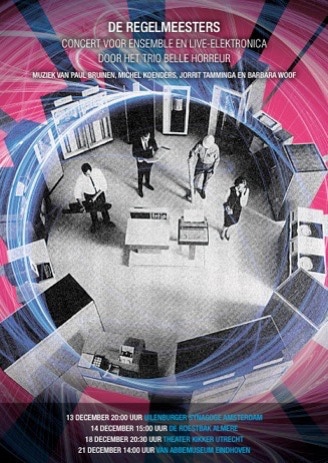
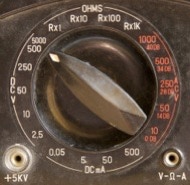
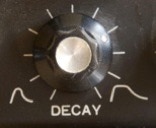
Audio design and Technical drawings: © Michèl Koenders 2008
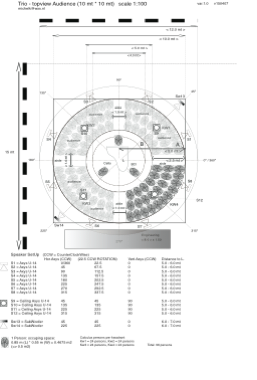
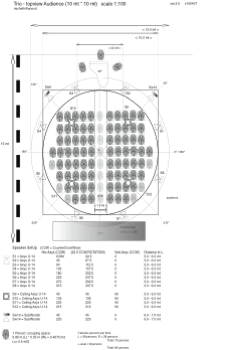
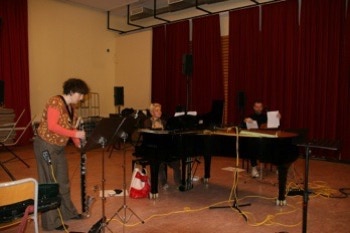
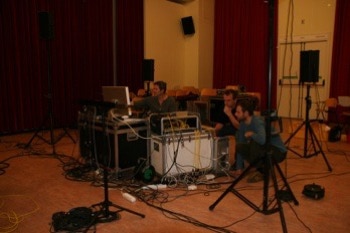
Trio Belle Horreur:
Sonsoles Alonso: Piano
Ainhoa Miranda: Bassclarinet
John Addison: Cello
Three of the UCC composers at work
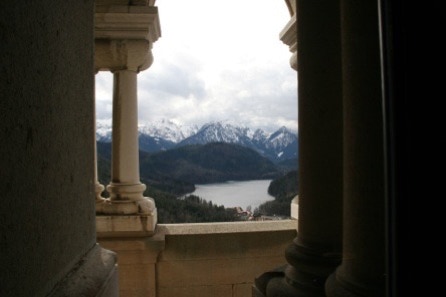
Ontwerp: Dré Kampfraath
